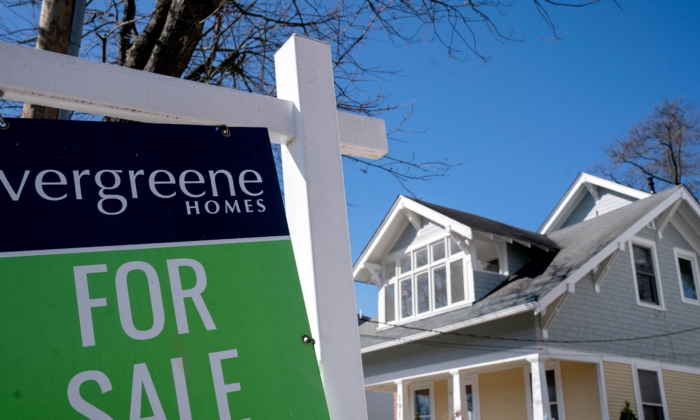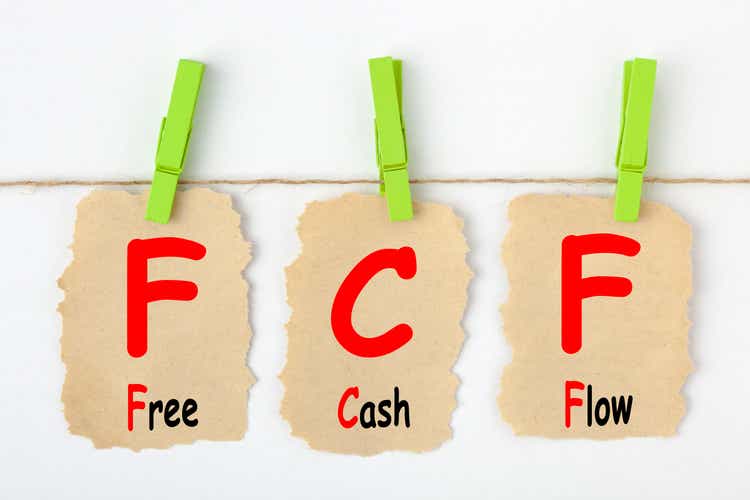
With spring lurking just around the corner, real estate professionals, along with potential home sellers and buyers, are gearing up for what has traditionally been an indicator of market performance for the remainder of the year. “March is always an interesting month, as the slow pace of the winter begins to thaw and buyers on the sidelines decide whether to finally make their moves,” Nadia Evangelou of the National Association of Realtors (NAR) told The Epoch Times. The senior economist and director of real estate research is optimistic about this year’s spring market, predicting an uptick in activity for both sellers and buyers as mortgage interest rates continue to stabilize.
“We don’t expect rates to drop in March, and home prices are still rising in much of the nation, but we do see that incomes have also increased, which could make it easier for the typical family to afford to buy now,” Evangelou said. “This year, we’re predicting more moderate price gains, as we’re starting to see more inventory come onto the market,” Evangelou said. “We still have a pent up demand for homes and while the supply has improved, we are still holding at about 3 to 3.

5 months of supply—still short of the traditional 6 months’ supply.” While some regions of the country are still seeing multiple offers and bidding wars, Evangelou noted that most homes now garner just two to three offers on average. “Those buyers who really want to own property are also being more flexible by considering different types of homes, like condos or townhouses, or broadening their geographic scope to include more affordable areas,” she said.
Meanwhile, the luxury market remains strong, as many buyers in that segment are still involved with cash deals, Evangelou said. For those relying on mortgages, Jim Nabors, president of the National Association of Mortgage Brokers (NAMB) told The Epoch Times that potential buyers on the fence should act now. “Many first-time homebuyers are looking for a return to the COVID-era rates and that isn’t going to happen,” he shared.
“Hopefully, they realize that it’s better to borrow at today’s rates and not continue to pay rent and watch the housing market continue to increase in value.” Nabors also noted that rising home insurance rates are another hurdle that homeowners have to battle, especially in areas of high risk for flooding or wildfires. “The cost of homeowners insurance may for the first time in history become a factor when purchasing a home,” he said.
“In some areas it’s increasing from $600 to $3,000 a year or more. That could determine where new homeowners will be able to afford to purchase properties.” Like Evangelou, Nabors believes the that market traditionally opens up during the Spring, as families begin looking to move and settle into a new home before their children start back to school.
“Many retirees looking to downsize also begin their search for a new home or new location in the Spring,” Nabors said. “Retirees may also be able to take advantage of the increased value of their homes and move to an area of the country offering lower pricing.” NAR reported that existing home sales in January declined the most in the West, dropping by 7.
4 percent, while the median sales price rose by 7.4 percent to $614,200. Home sales in the South fell by 6.
2 percent, with the median price rising by 3.5 percent to $356,300. In the Northeast, home sales dipped by 5.
7 percent, while the median price saw an uptick of 9.5 percent to $475,400. The Midwest sales remained unchanged from last year, with the median price rising by 7.
2 percent to $290,400. Jonathan Lickstein, president of Broward, Palm Beaches & St. Lucie Realtors in Florida, told The Epoch Times that while existing home sales were down in January, the area’s strong cash buyer activity and out-of-state migration should keep demand steady in southern Florida.
“If interest rates improve slightly, that would incite more transactions to occur from the pent up demand in our region,” he said. “Even with the reduction in transaction volume, prices have continued at a healthy pace of growth, with a 3.5 percent year-over-year increase of the median sales price across all south Florida counties.
” According to Lickstein, Palm Beach County has the highest median single-family home sales price at $650,000, followed by $640,000 in Broward County, $619,000 in Martin County and $383,900 in St. Lucie County. All experienced year-over-year price growths.
“St. Lucie County remains the most affordable for first-time buyers,” he said. “Lauderdale Lakes was recently featured by Realtor.
com as the No. 4 market for first time homebuyers in the nation with a median listing price of $154,850.” Lickstein noted that while demand remains strong, rising inventory levels and affordability pressures have eased the seller’s market.
“Multiple offers will still happen but not at the frequency we saw during the pandemic,” he said. “Homes are also taking longer to sell, which leans more towards a balanced market where there are options for buyers with less competition. Sellers also have become more negotiable.
” Condos and townhomes lead the new inventory hitting the market, according to Lickstein. In Houston, Texas, the real estate market is also showing signs of continued growth and stability. “The market has achieved a balanced state, with a four-month inventory supply, providing opportunities for both buyers and sellers,” Theresa Hill, chair-elect of Houston Association of Realtors (HAR), told The Epoch Times.
“Looking ahead, forecasts suggest a steady appreciation in home values throughout 2025, with projections indicating a 1.9 percent increase by year-end.” “We are seeing a more balanced market right now, where neither the buyer or seller has the upper hand and inventory is at its highest level in nearly a decade,” Hill said.
“Properly priced homes often attract several bids, leading to competitive situations among buyers.” As in many areas across the nation, spring is usually a busy time in the Houston housing market. HAR’s new listings increased by 21.
9 percent from January 2024 to January 2025, and active listings increased 31.3 percent year-over-year. “I think these numbers indicate we will see more homeowners testing the waters and putting their homes on the market, driven by growing buyer enthusiasm,” Hill said.
The report cited rising home prices, mortgage interest rates and tax rates as the main deterrents to home buying. However, the report also indicates that more than half of Americans plan to purchase properties this year. Of this group, 61 percent are Generation Z, followed by Millennials, Generation X, and Baby Boomers.
This potential homebuyer group expressed their desire to own rather than rent, a need for more space, and an investment opportunity. More than 74 percent of these buyers are shopping in the under $500,000 price range. Of the group, 38 percent intend to buy a single-family home, while 27 percent are planning for a condo or townhome.
The remainder are seeking investment properties, a second home, or a mobile home. Evangelou confirmed that first-time buyers may face challenges but noted the current market has improved over last year. “I think what happens this spring will be an indication of what’s to come for the rest of 2025,” she said.
.















